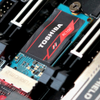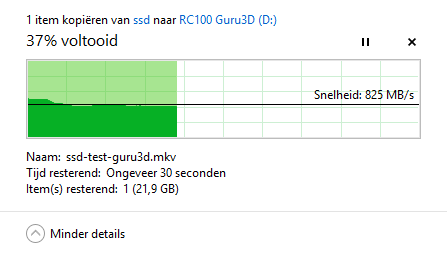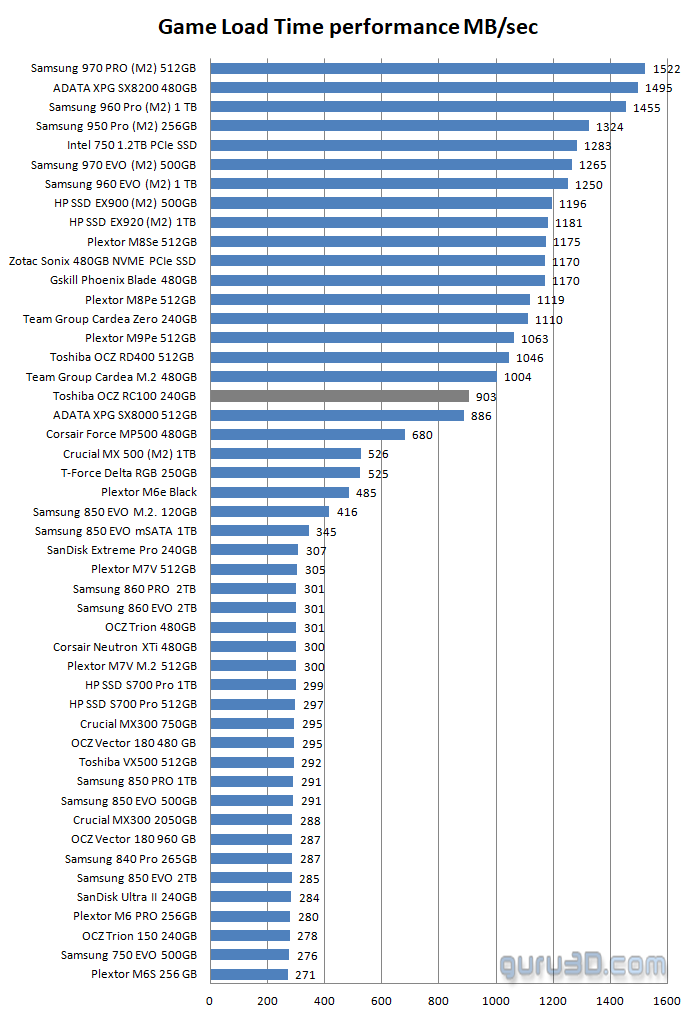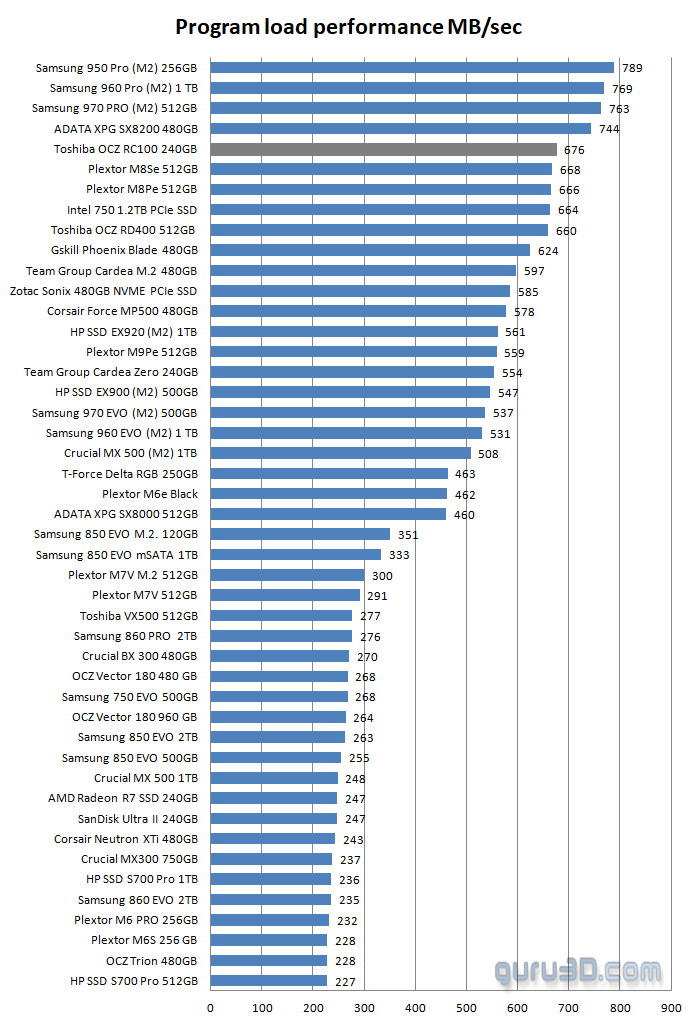SSD Performance File Copy Tests
SSD Performance
In this round of benchmarks, we start off with our real-world file copy tests. Currently, certain controllers benefit from compressed files, while others don't. Certain storage units hate small files, others work well with them. So it only makes sense to do some manual tests on that. Any storage unit's nightmare, whether that is an HDD or SSD, is storing really small files as fast as possible.
** We decided, for this review to add a tiny bit of airflow with the help of a low RPM fan 10cm away from the storage unit to prevent thermal throttling **
File Copy
The most basic and simple test anyone can perform. We simply drop a 38 GB compressed MKV file onto the SSD. That write number will fluctuate a bit here and there during the writing process, but this is VERY consistent, which kind of surprised me for TLC and no DRAM cache.
So as you can see, the initial phase of the copy tests is at a solid 825MB sec.
Later on, however, performance caved in. Now, this is a 38GB file transfer. So after roughly 60% of the transfer (give or take 23 GB of data), the SSD ran out of cache buffer. I can't say I like the 231 MB/s there though, but that's the limitation of TLC when not cached enough. How important this is to you, only you can decide.
Performance Game Load Times
Here at Guru3D.com, the audience catered to is primarily made up of gamers. And as such, I'd like to start offering real-world performance game tests. During game load, a lot of things happen in the system. The CPU is hard at work, your SSD loads up executables, binaries, shaders, textures and what not while the system memory process it all. Thing is, with a fast SSD you can really decrease the overall load time of your games and levels.
We now measure based on game sequence load and translate that into the number of MB/s the storage unit can manage and load. Higher is better in this chart.
Performance ISO Creation
An ISO file is often comprised of many files archived into a file-container, for example creating a DVD. Below, that situation is emulated. A fast writing SSD will be able to create an ISO much faster opposed to a slower writing SSD. In the chart below faster is better.
Performance Application Load Time
Here we emulate the loading of complex software like Photoshop, Internet Explorer, Word, PowerPoint etc. So how many applications / dlls / hooks / etc. simultaneously in MB/s this storage unit can cope with. High IOPS storage units will score better here as it can manage more files in less time.






